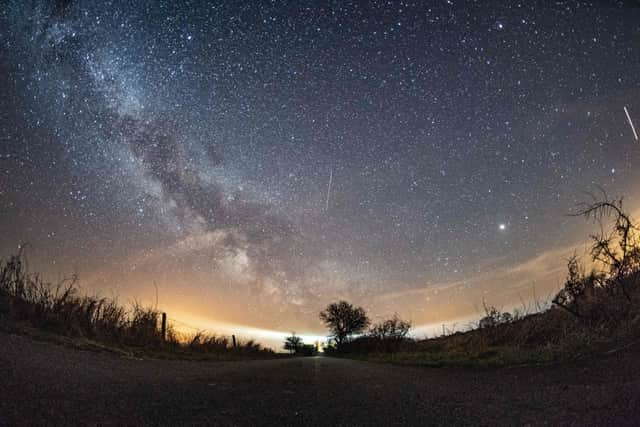Lyrid meteor shower 2023: How to see shooting stars in the UK, when do they peak & best time to see them
and live on Freeview channel 276
The night’s sky will be lit with shooting stars over the next few weeks as the Lyrid meteor shower takes place across the UK. The Lyrid meteor shower occurs in April each year and is watched by people around the world.
The spectacle was first observed in ancient China in 687 BC, making it one of the oldest known meteor showers in existence. The bright display of meteors occurs when the Lyrids pass through the trail of debris left by the Thatcher Comet.
Advertisement
Hide AdAdvertisement
Hide AdOne of the most unpredictable meteor showers, the Lyrids are known for surges that can see high rates of meteors per hour.
But when will the Lyrid Meteor Shower take place and when will it peak? Here’s everything you need to know.
When is the Lyrid meteor shower 2023?
This year, the Lyrid meteor shower will begin on April 14 and it is expected to end on April 30. The shower will be at its peak between April 22 and April 23 as the display is at its brightest with 18 meteors per hour.
Best time to watch the Lyrid meteor shower


According to the Greenwich Royal Observatory, the best time to see the meteor shower in the UK is during the early morning of the two peak days.
Advertisement
Hide AdAdvertisement
Hide AdThe Royal Observatory also recommends that stargazers should wait until after midnight for best visibility, as the radiant point in the constellation of Lyra will have risen in the east, offering a better view of the horizon.
The spectacle is visible to the naked eye as long as the night’s sky is clear and the best way to view the shower is to watch it somewhere that is not contaminated with light pollution and gives a clear picture of the sky.
Comment Guidelines
National World encourages reader discussion on our stories. User feedback, insights and back-and-forth exchanges add a rich layer of context to reporting. Please review our Community Guidelines before commenting.
